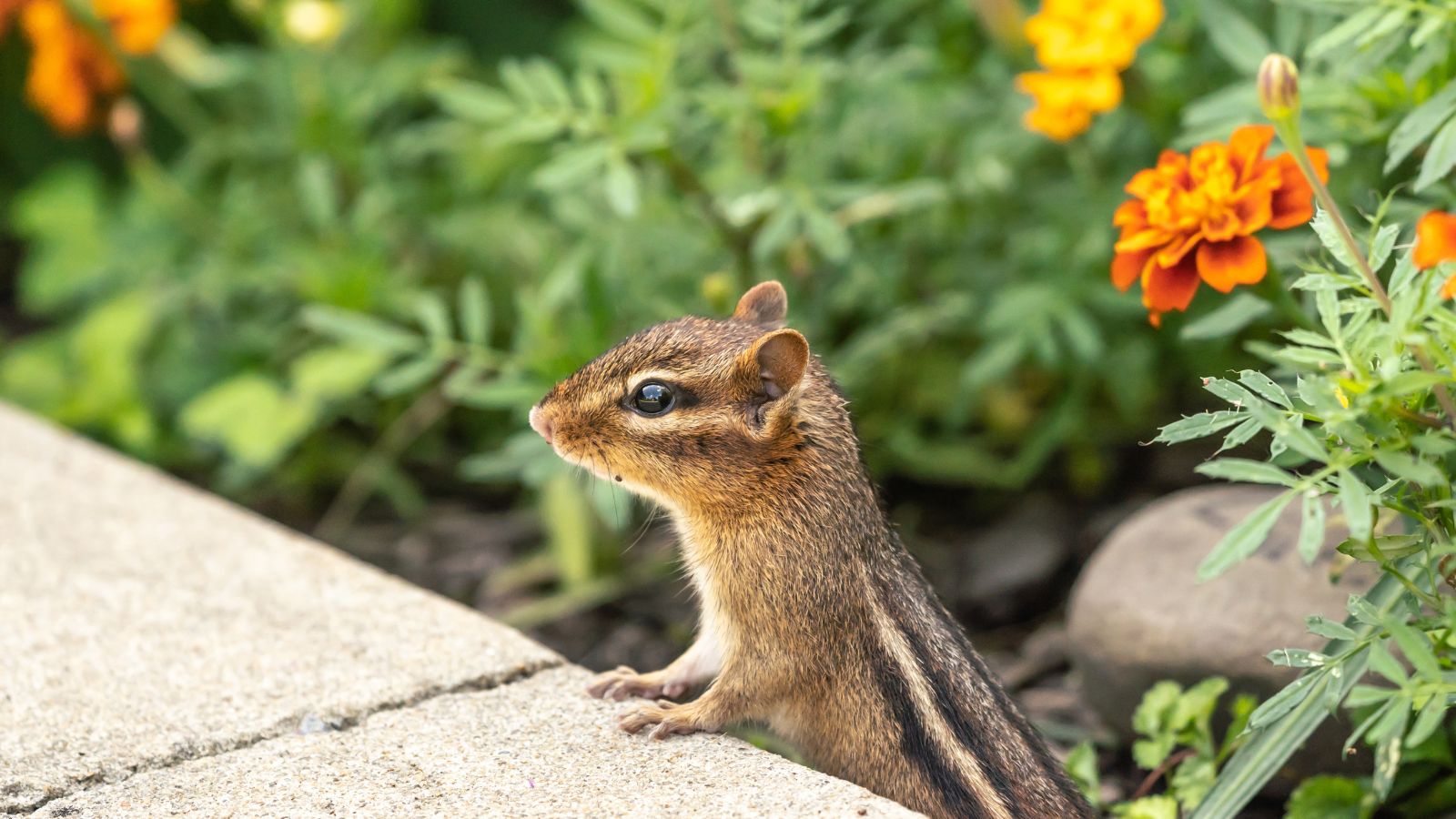
There's no denying chipmunks are among the cutest pests you can come across in your backyard, but they can also become a bit of a nuisance. Whether you've spotted them lingering in your garden or digging up your flower beds, you probably want to know how to get rid of chipmunks once and for all.
Despite their diminutive size, chipmunks can be incredibly destructive, whether they're disrupting your manicured lawn or burrowing beneath your home. The good news, however, is there are plenty of humane and natural pest control methods that will help you to get rid of chipmunks from your yard.
Here, pest control experts have explained the best methods to try or combine, for protecting your yard against these hungry critters.
12 ways to get rid of chipmunks in your yard
Signs you have chipmunks in your yard include small holes in lawns, dug up flowers beds and plants that have been eaten. Luckily, like getting rid of moles and getting rid of lizards, it's easy to get rid of chipmunks and prevent them coming into your yard. Here are expert methods for you to try.
1. Use a humane trap
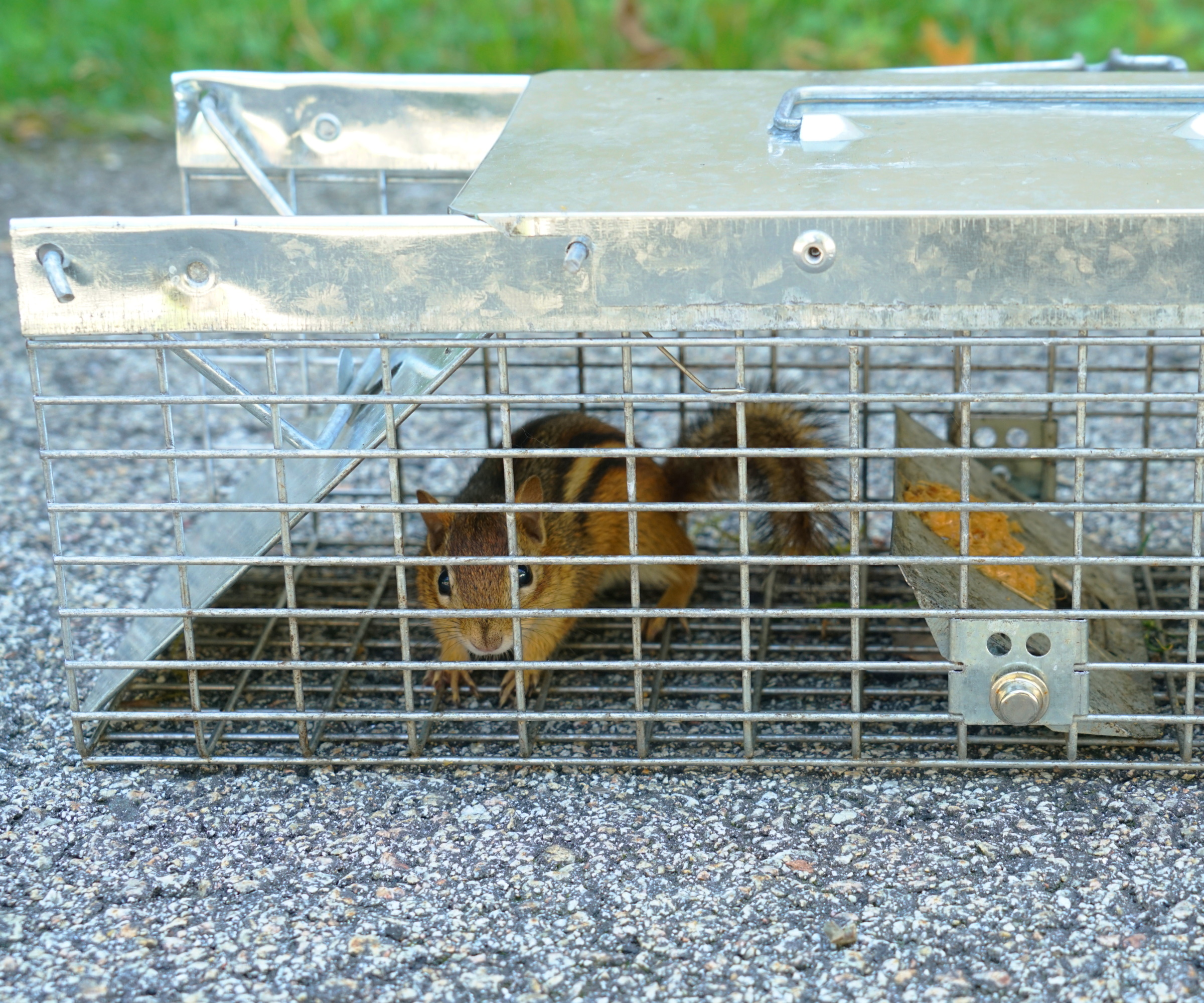
'If you have a significant chipmunk problem, humane traps can be useful,' says Rocky Beninato, pest control expert and founder at Quality Affordable Pest Control. 'You'll need to handle live animals though, so make sure you're comfortable doing so before setting them out,' he adds.
There are lots of humane pest traps on the market, like this catch and release trap on Amazon. They have a one-way entrance which doesn't allow the chipmunk to leave again. You can encourage them to walk into the trap by putting food in the cage.
'Release the chipmunks a decent distance from your home so they don't return,' suggests Rocky.
Something to note, however, is there may be local regulations around trapping and relocating chipmunks in your area. You should always research this and abide accordingly.
When handling chipmunks in this way, make sure to use essential gardening tools, like gardening gloves available at Amazon, to protect your hands.
2. Remove food sources
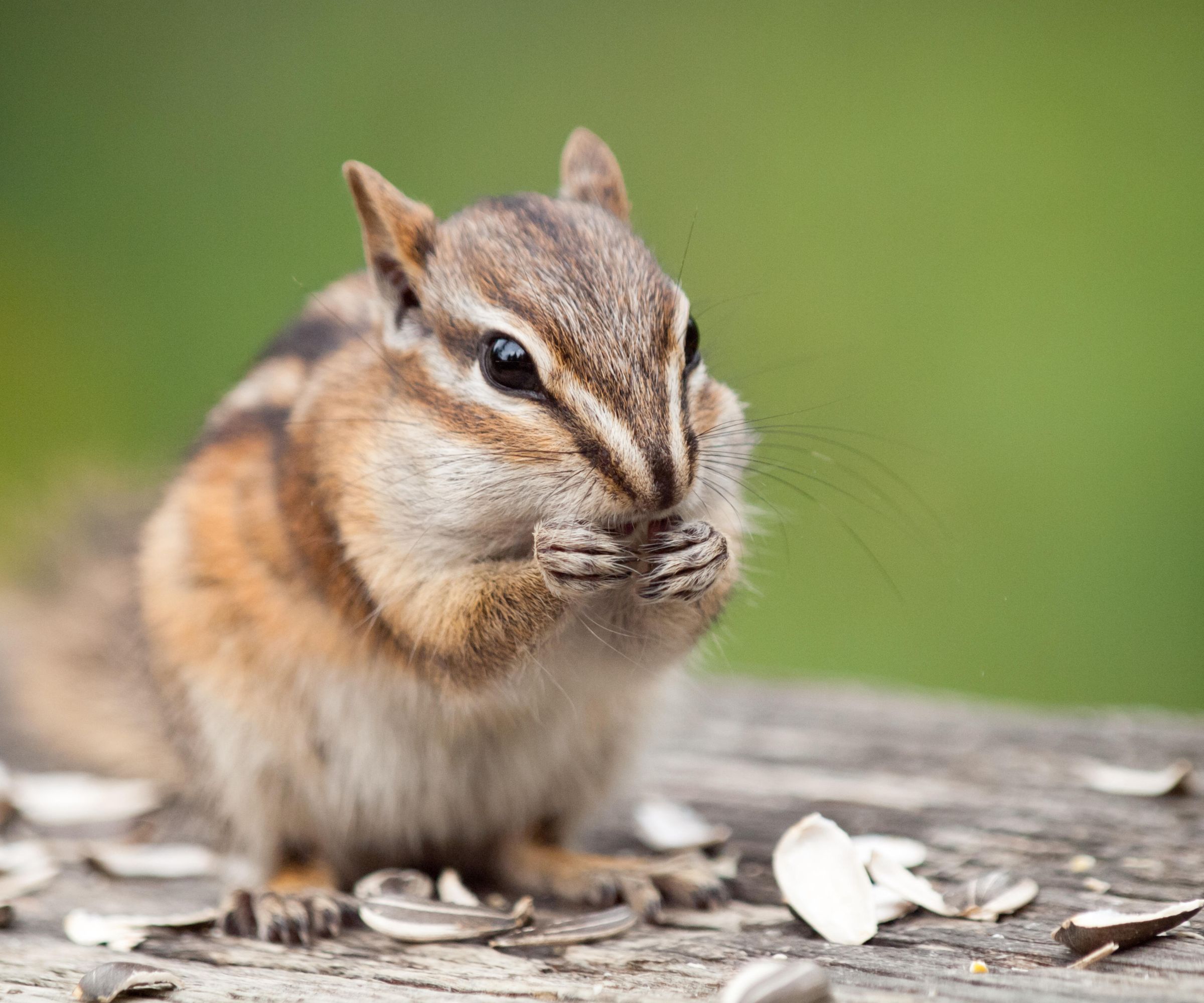
Removing food sources from your yard, or inhibiting access to birdfeeders, is one of the most effective ways of tackling pest problems, from getting rid of skunks to ridding yourself of chipmunks.
'Chipmunks typically enter your yard and garden to find readily available food. If your yard is littered with nuts, berries or seeds, nearby chipmunks are likely to come around to eat them,' explains Meg Pearson, pest control expert from Critter Control.
'If your garden flowers are easily accessible to them, they will likely burrow in and around your garden to eat those too. Therefore, the closer your garden is to your home, the more you risk their tunnels damaging your home’s foundation,' she adds.
Some examples of removing food sources include cleaning up fallen fruits and nuts and storing seeds away in sealed containers.
3. Use ultrasonic deterrents
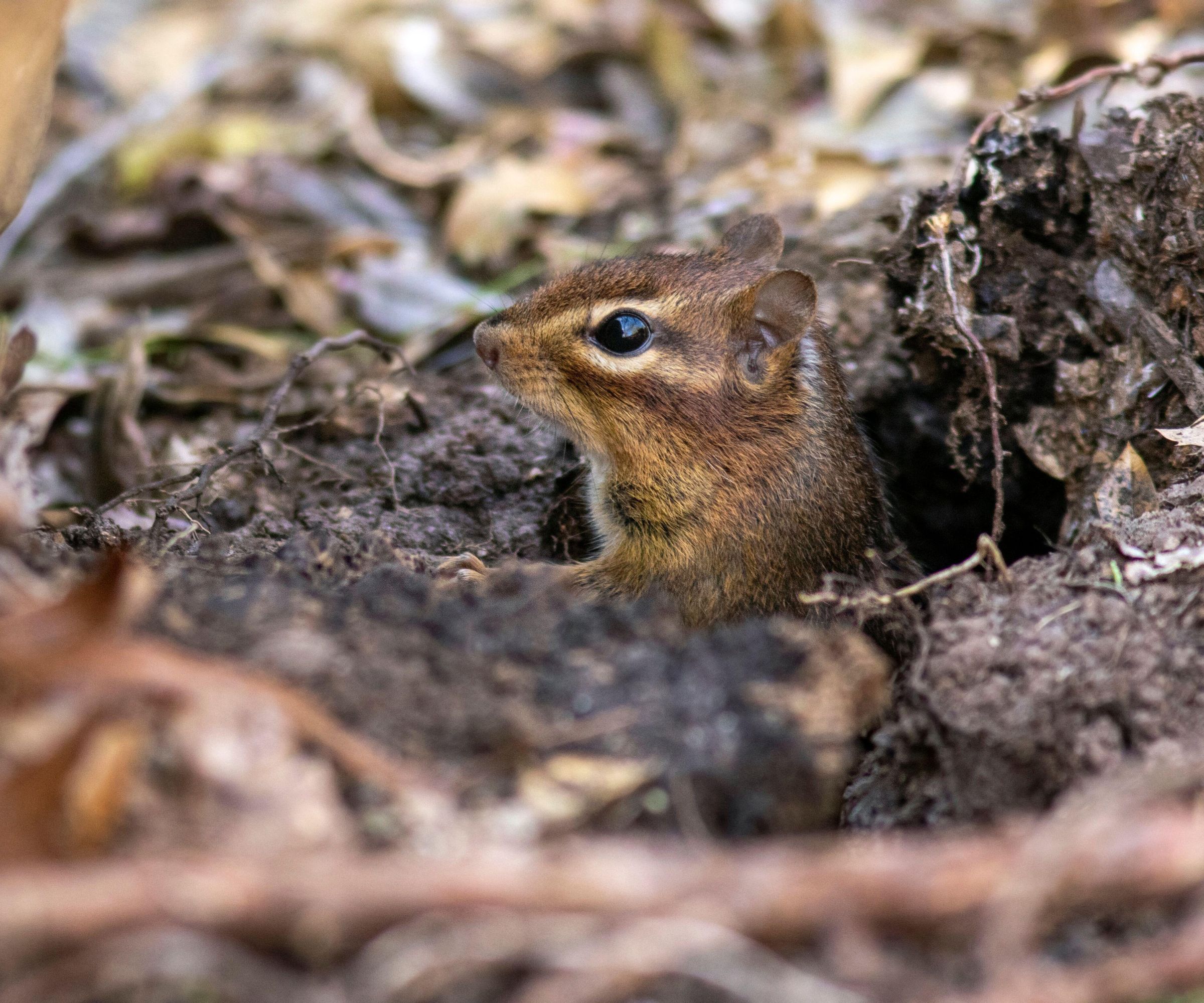
Also perfect for keeping wasps away from your porch and getting rid of bats humanely, ultrasonic deterrents are humane noise machines that make your yard unpleasant for wildlife to hang around in.
Ultrasonic chipmunk repellents are particularly effective. These devices emit high-frequency sounds that are designed to keep chipmunks and other rodents away. You can find them online, like this ultrasonic animal repellent from Amazon.
While these repellents can be effective, it's important to note they may not work in all cases and may need to be used in combination with other methods.
4. Protect your plants
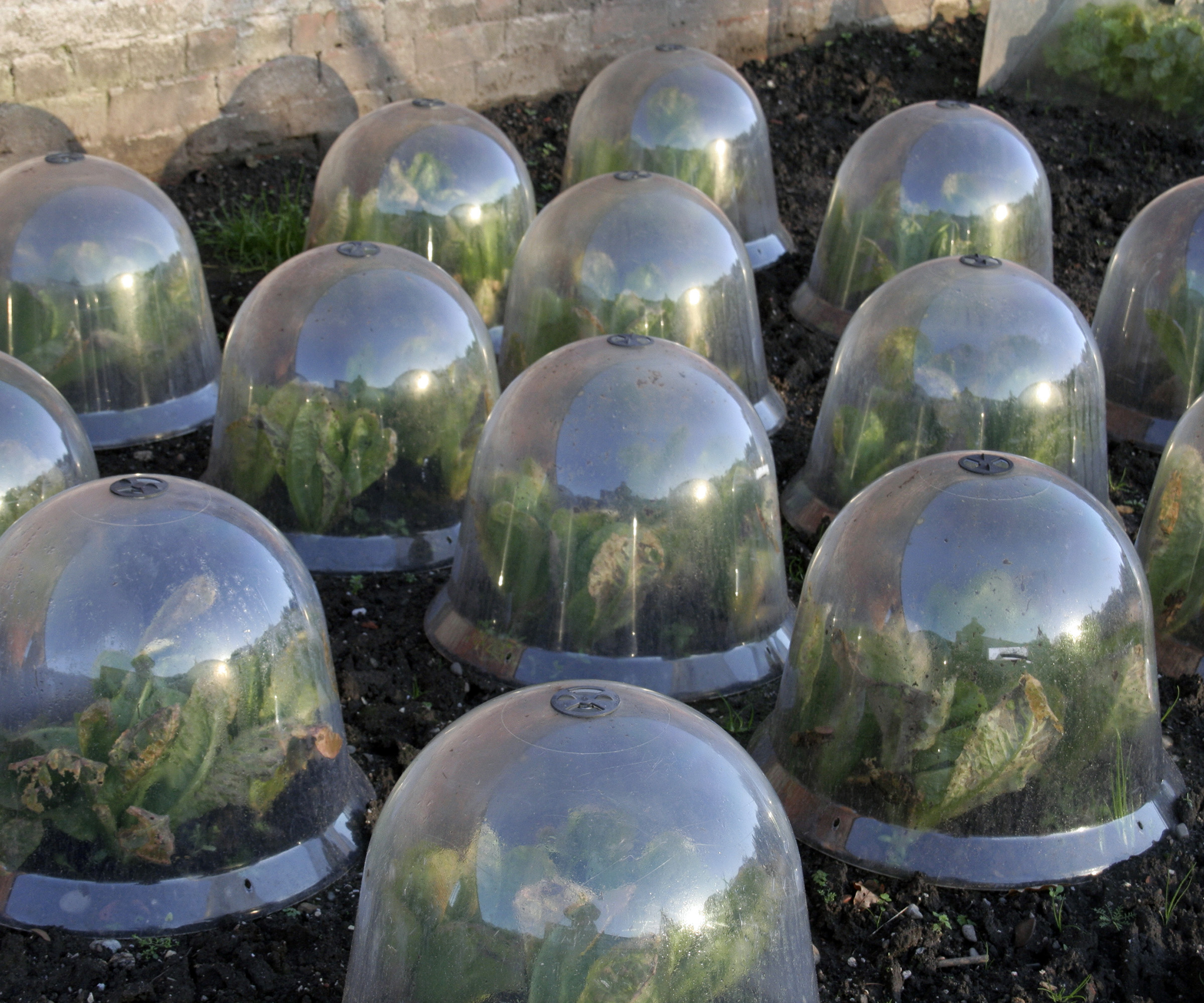
'Oftentimes, it is your perfectly manicured gardens and flower beds that are attracting chipmunks to your yard,' explains Rachel Bull, Head of Gardens at Homes & Gardens. 'There are a few steps you can take to help protect your plants and deprive the chipmunks of snacking opportunities. For starters, you can plant flower bulbs in bulb cages to prevent chipmunks from digging them up.’
‘If you have chipmunks snacking on your precious garden foliage, place hardware cloth – such as this cloth, available from Amazon – about one foot underneath the soil and over the top of your plants to prevent chipmunks (along with other digging rodents and animals) from getting to your garden,' suggests Zackary DeAngelis, pest control expert and Founder of Pest Pointers.
‘Be mindful you may have to continue this process while they make new entrances until the chipmunks realize there isn't anything left for them in your yard,' he adds.
There are plenty of other ways to protect your plants - like with these cloches from Amazon. This is also an effective method for protecting plants from frost.
5. Find alternative storage for log piles
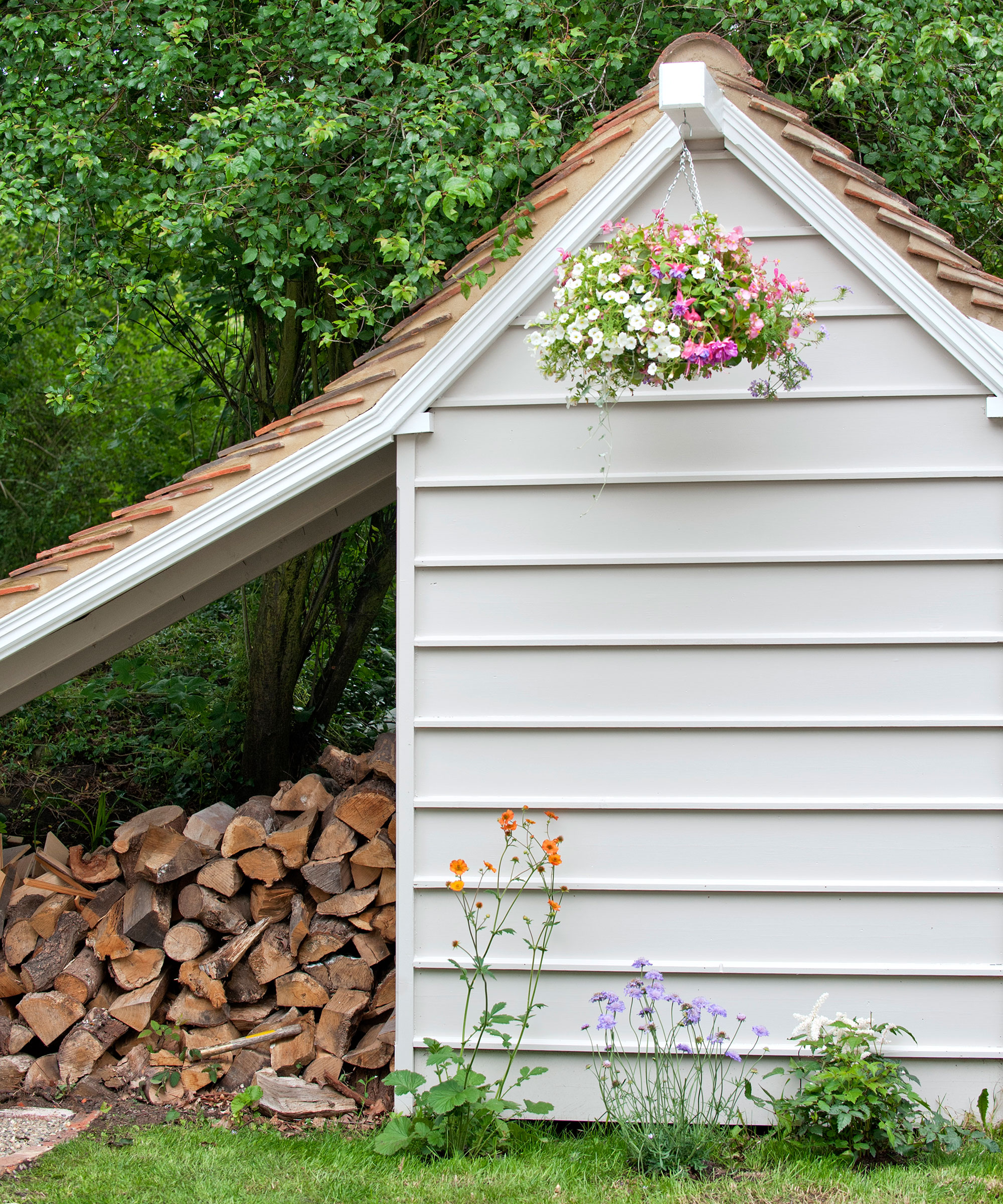
If you have a cozy wood burner, then the chances are you also have piles of firewood somewhere in your yard. These piles offer perfect shelter for small chipmunks, encouraging them to make a home in your yard.
Keep firewood and leaf piles away from your property so chipmunks cannot burrow underneath them and possibly under the foundation of your home. Instead, consider some locked or concealed backyard storage to keep your logs dry and free from pests.
6. Keep your yard clean and tidy
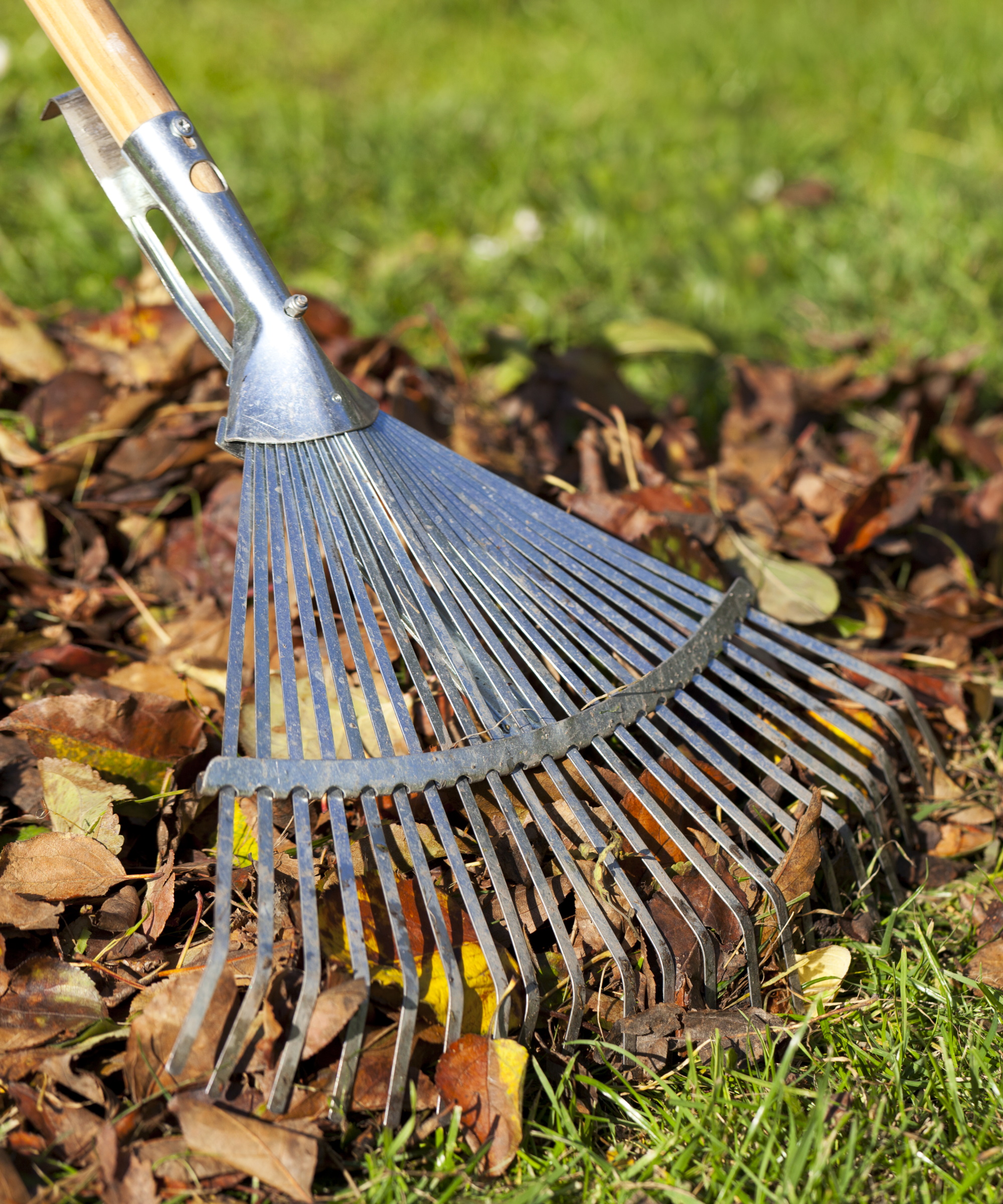
One of the biggest pest control mistakes is not keeping your outdoor space clean, offering more places for pests to take shelter and linger.
By regularly getting rid of fallen leaves, removing plant and ensuring you have sealed storage, you can make your yard less attractive to chipmunks and other curious wildlife that come into your yard so they don't take up permanent residence.
7. Protect bird feeders
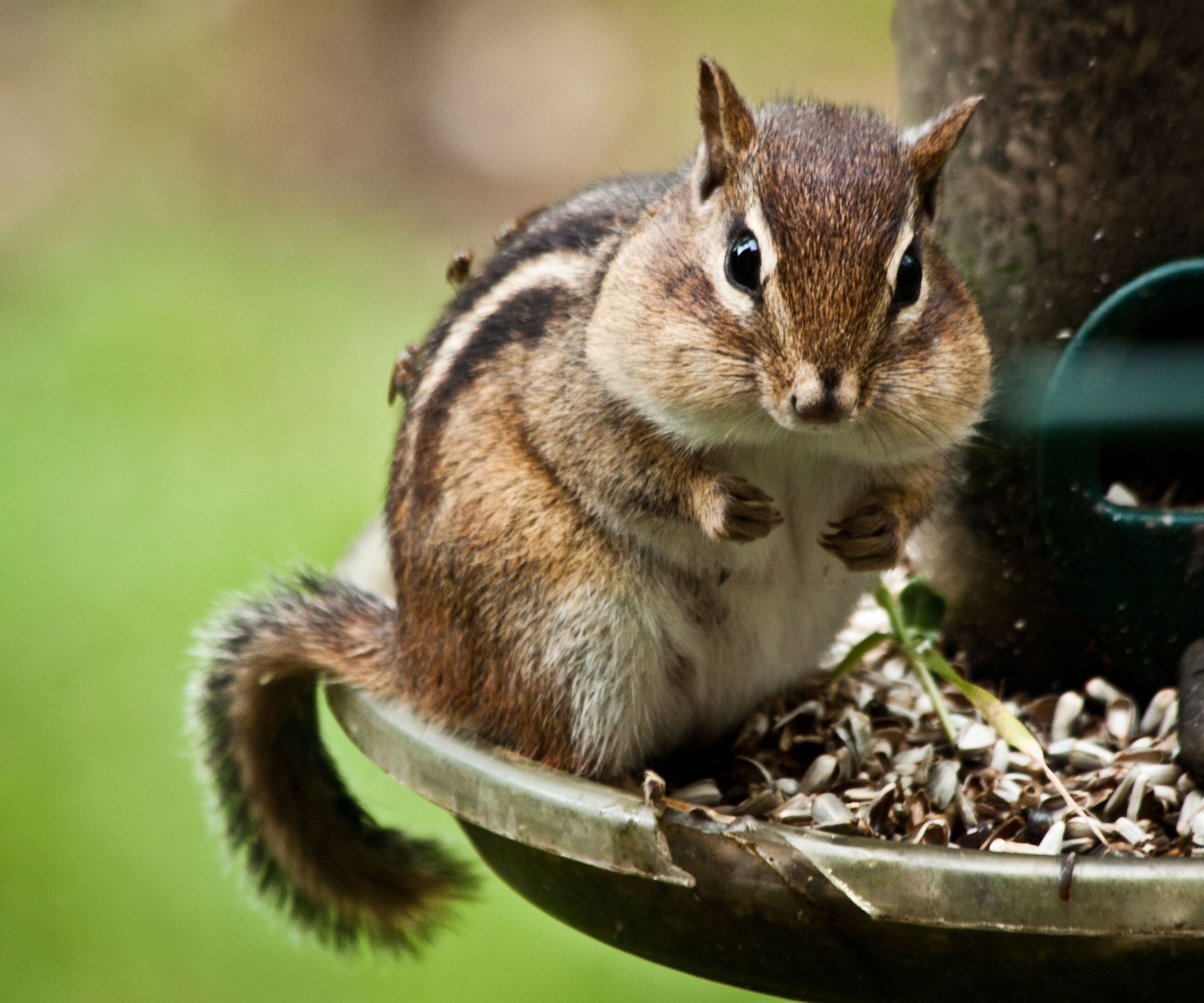
Birds are excellent pest control experts in their own right, and creating a wildlife garden with a bird feeder is a great way to encourage these creatures into your yard. The downside is birdseed is a perfect snack for chipmunks, encouraging them into your space too.
‘It's important to protect your bird feeders,’ urges Rachel Bull, Head of Gardens. ‘Try not to store food outside, including birdseed or pet food, unless it is stored in rodent-proof containers.
'Chipmunks will likely be drawn to spilled seeds, so frequently clean up any excess seeds from your floors,' she continues. 'You could also opt for birdseed that does not attract chipmunks, such as thistle, and place bird feeders at least 15-30 feet from any structure.’
You can follow this same advice to keep squirrels away from bird feeders, as most opportunistic rodents will come into your yard if they suspect there is birdseed on the menu.
8. Consider a non-lethal chipmunk repellent
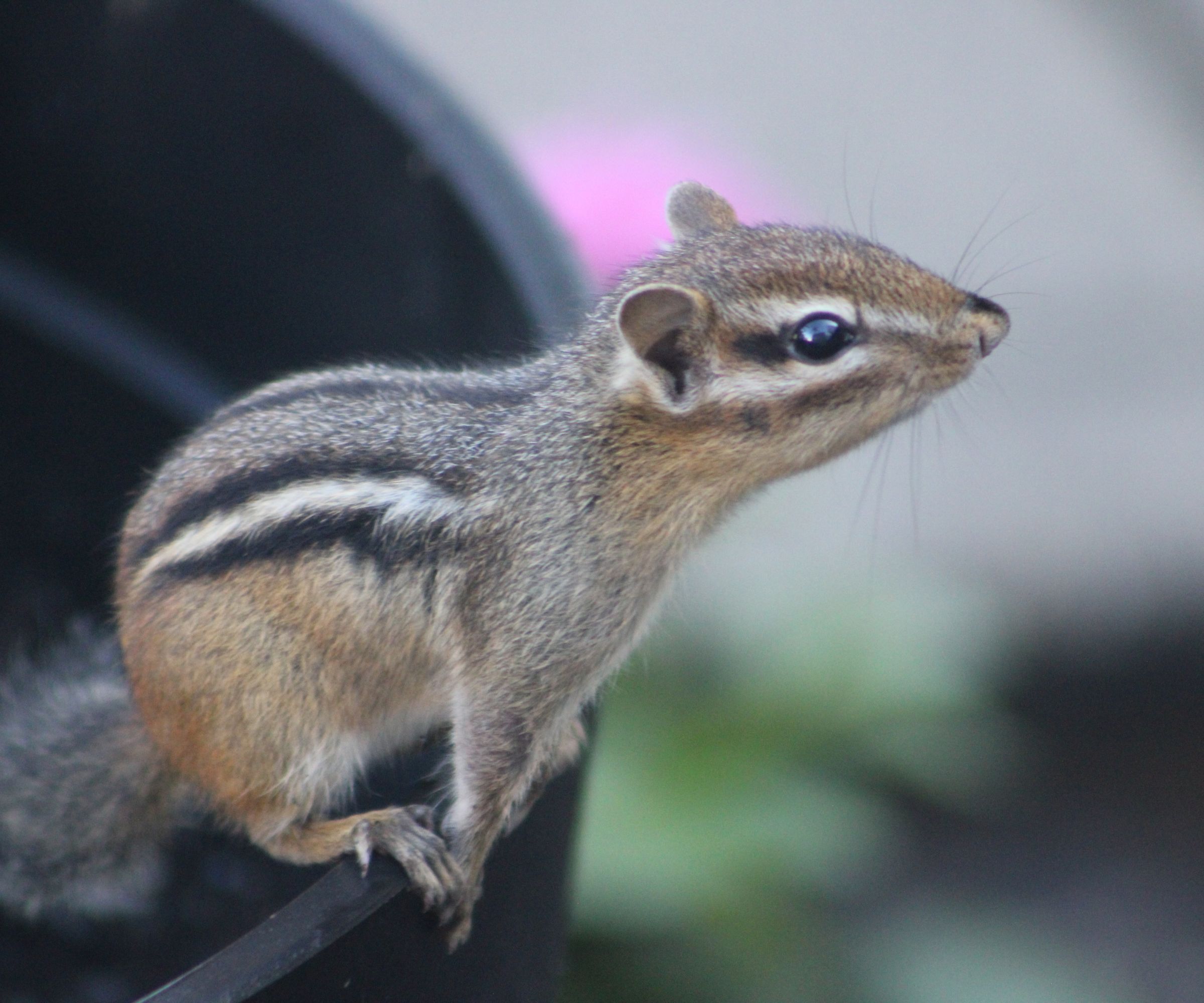
As with getting rid of mice, it is important to consider non-lethal and homemade chipmunk repellents over poisons and toxins. Not only are poisons unnecessarily harmful to rodents, but they can damage plants, soil, and other non-harmful creatures such as hedgehogs or even household pets.
You can find a variety of rodent repellents on the market, like this natural repellent spray from Amazon. This is a particularly effective way to keep chipmunks out of potted plants.
A repellent spray may not be the perfect solution for getting rid of chipmunks when used on its own, however, warns Zack DeAngelis of Pest Pointers. ‘While you can use things like scent repellents and specific rodent sprays, they're generally supplemental and need to be practiced with exclusion methods to be as successful as possible.’
9. Add spice to bird seed
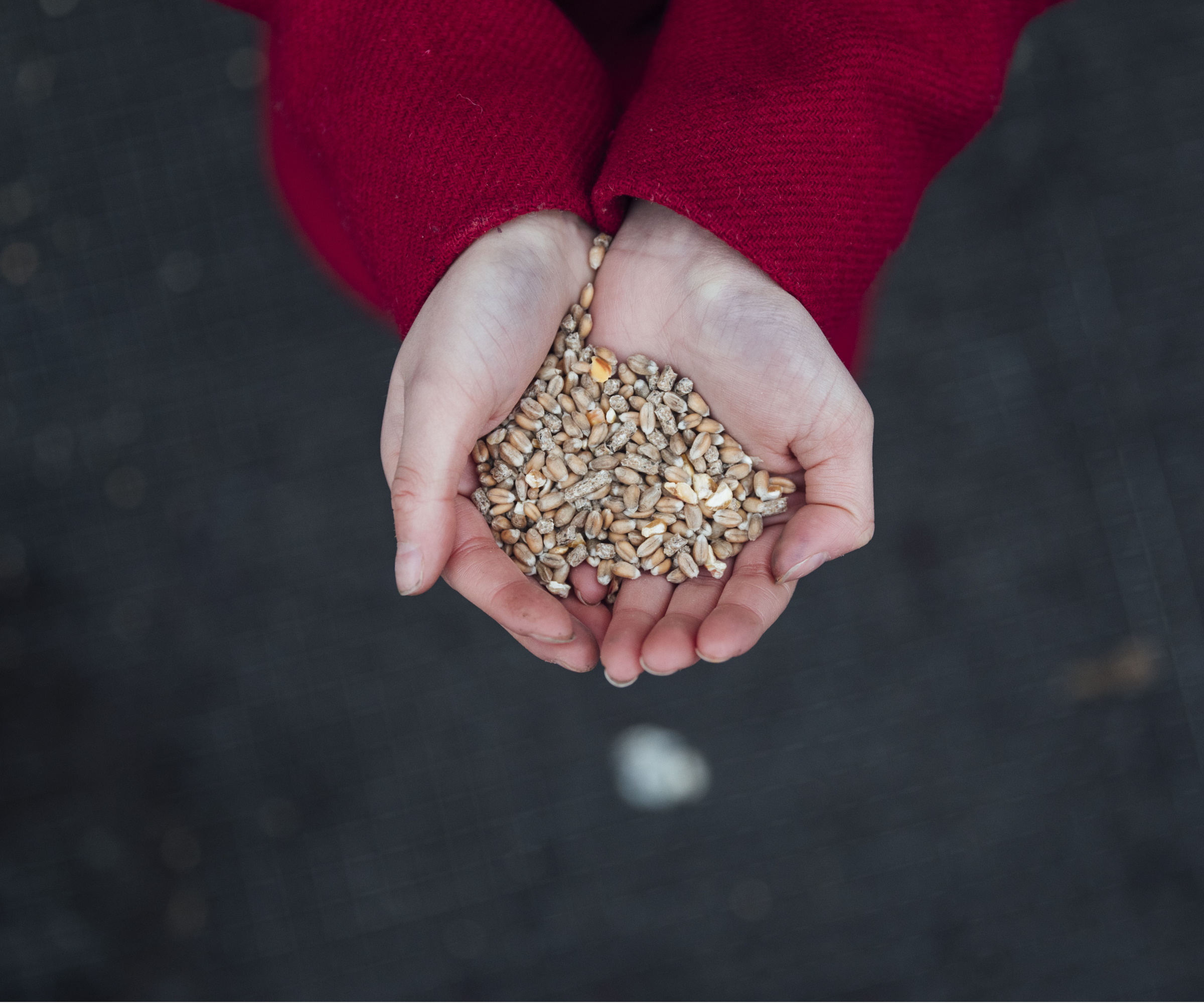
Chipmunks eat bird seed and if you have a bird feeder that often drops seeds, chipmunks may choose to stick around.
'Adding cayenne pepper to bird feeders is a popular way to deter squirrels and chipmunks, as they dislike the taste and feel of the spice while birds are unable to detect it,' says Rocky Beninato.
Cayenne pepper, available at Walmart, is a popular spice to also keep squirrels away from bird feeders.
'However, we still aren't sure if cayenne causes any health issues for birds, so to be on the safe side, bird lovers might consider using squirrel and chipmunk-resistant feeders instead,' suggests Rocky. Try installing this rodent-proof bird feeder from Amazon.
10. Grow chipmunk-repellent plants
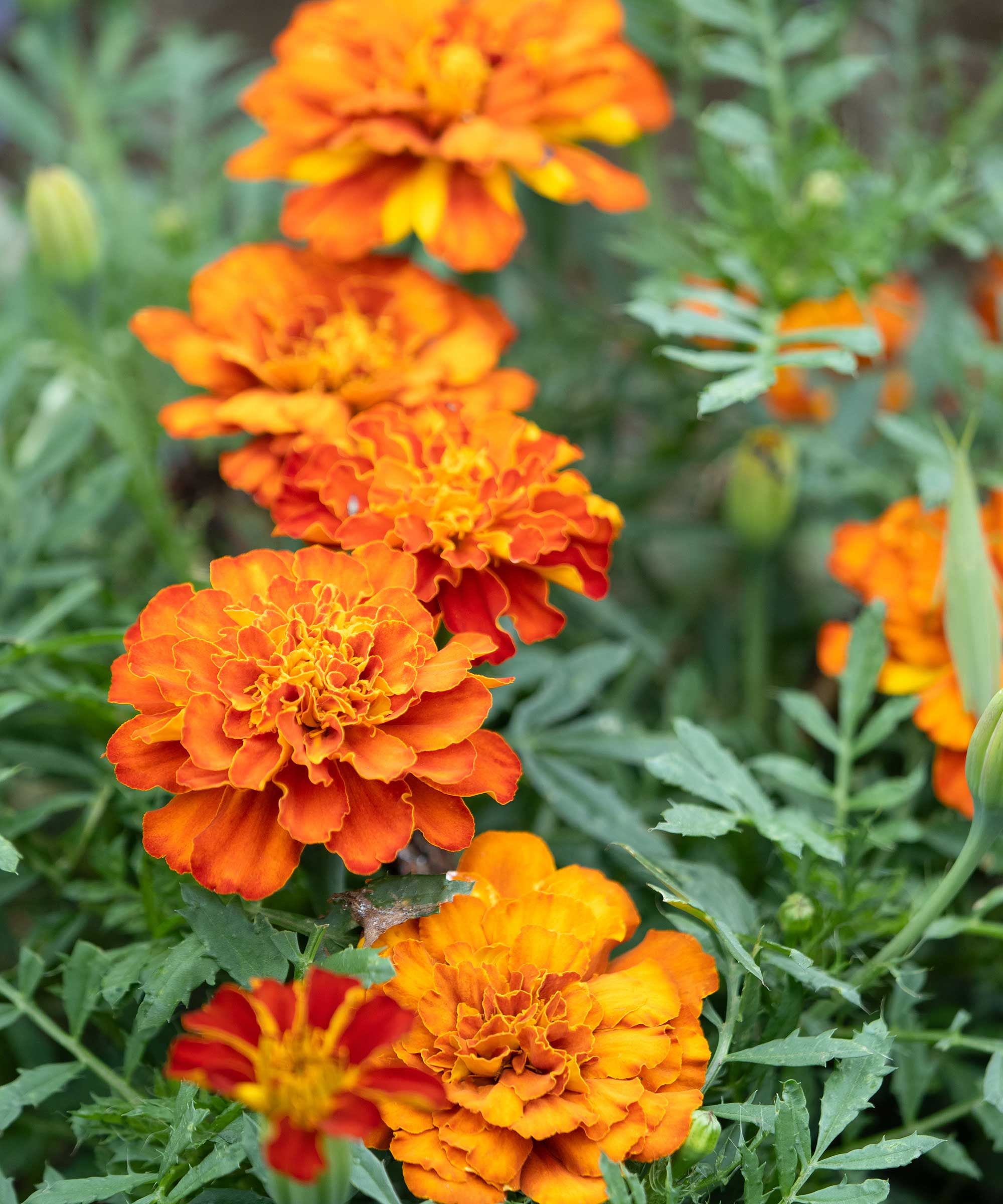
Pest-repellent plants are always a good option for keeping pests and unwanted wildlife away from your yard. These are plants that deter pests naturally, often due to their scent.
'Chipmunk-repellent plants include mint, alliums, marigolds, daffodils, lavender and geraniums,' says Meg Pearson.
Try building a chipmunk-repellent barrier with aromatic herbs or create a fragrant garden that is unpleasant for them to come into.
'However, these may only be effective for a short period of time,' warns Meg. 'Oftentimes, the chipmunks, who were initially put off by the presence of these plants, will get used to them and carry on into your garden,' she notes.
It's best to use multiple methods of keeping chipmunks away at one time for more effective results.
11. Use essential oils around your plants
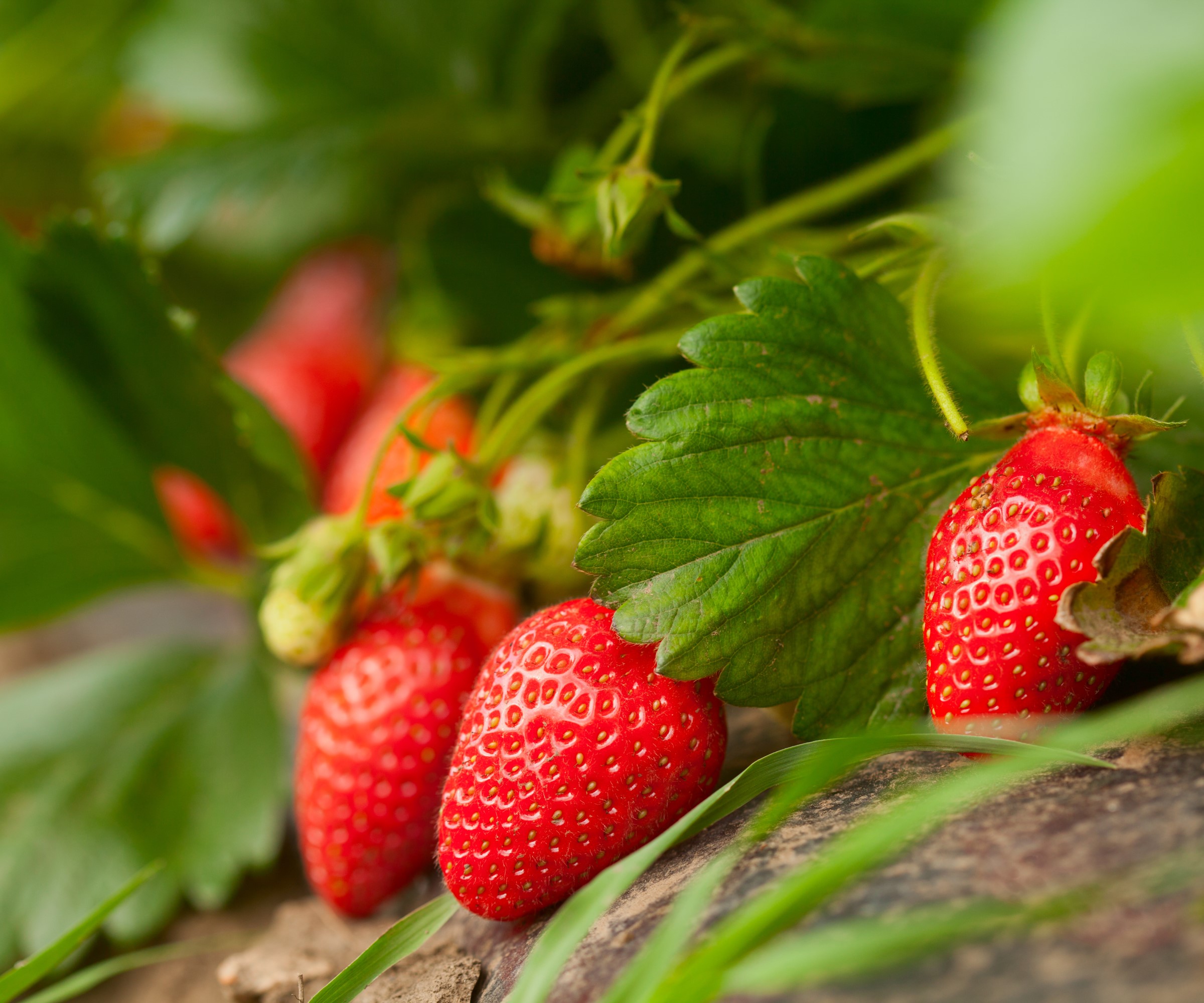
Natural essential oils can put chipmunks off your plants, because they are repelled by the strong scent and bitter taste.
‘Essential oils such as peppermint, lavender, citrus, geranium, cedarwood and eucalyptus can work well,’ says Rachel Bull. 'I suggest making up a solution with water in a spray bottle and applying around the base of any vulnerable plants, such as tomatoes and strawberries.
This set of essential oils from Amazon is a great-value find and will last for months.
'You may need to re-apply your spray a couple of times a day to ensure it is effective, and definitely after it rains,' Rachel adds. 'I use essential oils for all the cleaning tasks in my home, as well as for pest control in the yard, and I love that this is an entirely natural, non-toxic switch from much more harmful chemicals.'
12. Scatter hair clippings on your soil
Bizarre as it sounds, hair clippings can repel chipmunks and other pests.
However, you need a steady supply to be able to apply enough and replenish the hair once it has been outside for a few days.
You can use pet hair as well as human hair, so possibly one to try if you have a dog or long-haired cat in the family.
FAQs
Do I have chipmunks or squirrels in my yard?
You can recognize chipmunks on sight. Chipmunks have distinctive markings in the form of stripes on their backs and sides. They also tend to have white stripes above their eyes. Typically, chipmunks are five to six inches long. Squirrels, on the other hand, are around 12-20 inches long and don't have stripes on their back.
Do chipmunks bite?
Chipmunks have been known to bite humans when they feel threatened. Although their first instinct is to run away, cornering and handling chipmunks, especially wild ones, is ill-advised as they will naturally attempt to defend themselves by scratching and biting if needed. These wounds can easily become infected, so should be treated by a professional soon after.
Don't let the cute appearance of chipmunks fool you, these clever creatures can also be dangerous. Their burrows might even cause structural damage to a house. Therefore, it is essential to humanely deal with chipmunks as soon as you spot them.
If you're keen to keep chipmunks away from certain areas of your yard but want to offer alternative food sources and shelter for them, try making a wildlife garden in a separate area of your outdoor space.







